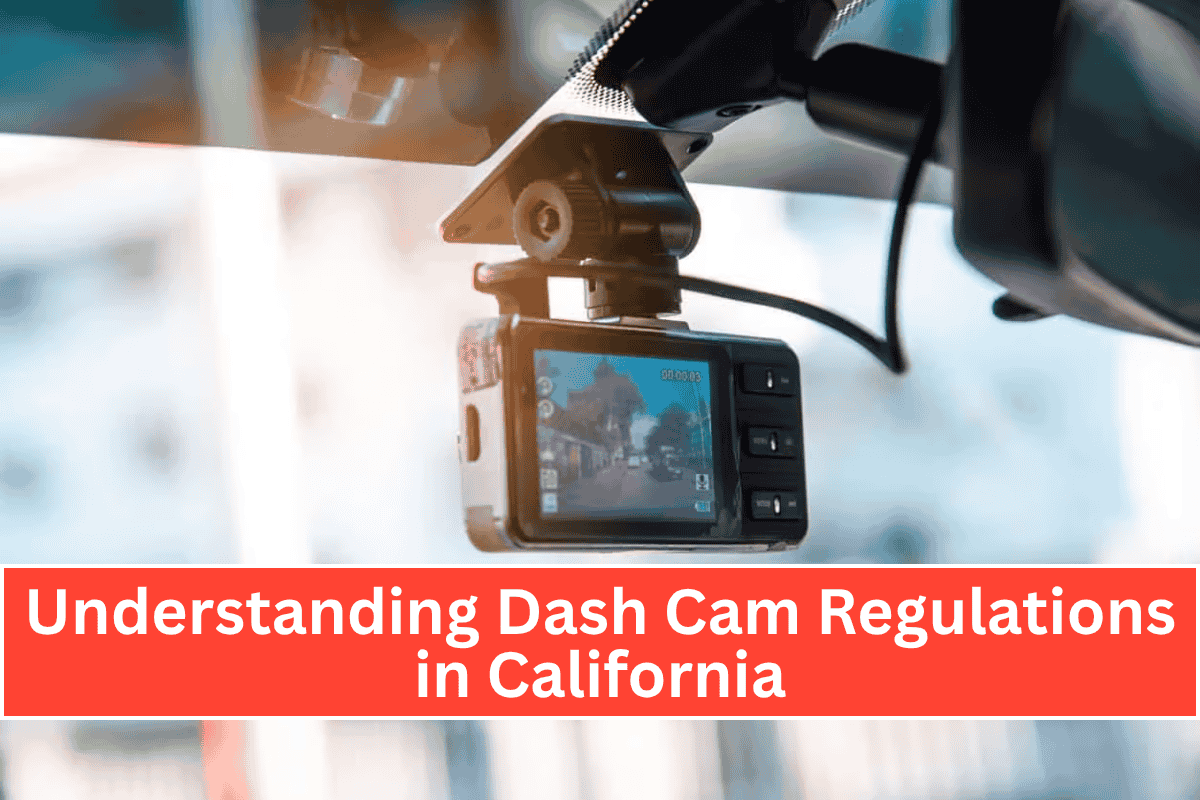Dash cams, or dashboard cameras, have become increasingly popular among drivers in California. These devices record video footage from the vehicle’s dashboard and can provide crucial evidence in the event of a car accident.
while dash cams are legal in California, there are specific laws governing their use. It’s important for drivers to understand these laws, especially if they plan to use the footage as evidence in a personal injury claim.
What is a Dash Cam?
A dash cam is a small, high-resolution camera installed on a vehicle’s dashboard that records video and audio while you drive. Some models are powered by the car’s accessory power port, while others have an internal battery.
Dash cams can capture various details like the car’s speed, location, and even detect sudden deceleration during a collision.
Advanced models may also automatically save footage if they detect a crash or rapid deceleration, while others require the driver to manually save specific recordings. Having video evidence of the moments leading up to an accident can help clarify the circumstances, especially if a dispute arises about fault.
Benefits of Using Dash Cams
The primary benefit of having a dash cam is the ability to capture video evidence in the event of a crash. This footage can help establish the cause of the accident and clarify the actions of all involved parties. For example, if another driver is speeding and hits your car, the dash cam may record their speed, strengthening your claim.
In cases of hit-and-run accidents, the dash cam footage can provide vital information like the at-fault vehicle’s license plate number, make, and model.
This can help law enforcement track down the driver responsible. Furthermore, the footage can also record conversations with police, which might be useful during insurance negotiations or in court.
Dash Cam Laws in California
Dash cams are legal in California, but there are certain restrictions on how they can be used. These rules are primarily concerned with privacy and safety. Here’s what you need to know:
Camera Placement: Dash cams must comply with California’s dash cam mount laws. If the camera is placed in the lower corner of the windshield (nearest to the driver), it should not be larger than five square inches. If it’s mounted in the top center portion of the windshield, it should also be under five square inches. If it’s placed in the lower right corner, it should not exceed seven square inches.
Airbag Safety: Dash cams cannot obstruct airbag deployment. Be sure to check with a professional (like a mechanic or dealership) to ensure your dash cam doesn’t interfere with the car’s safety features.
Recording Time: Dash cams may only record footage of the 30 seconds before and after a triggering event, such as a car crash.
Audio Recording: You cannot record audio of passengers without their consent. This applies to private vehicles, and drivers are required to notify passengers if their conversations may be recorded. Commercial drivers, like those driving for ride-share companies, must also display visible signs informing passengers about the possibility of being recorded.
Why Do I Need Consent to Record with a Dash Cam?
Despite being legal, recording audio with a dash cam in California requires special attention to privacy laws. If your dash cam records audio, you must inform passengers that they are being recorded and comply with their request to turn off the audio if needed.
Commercial drivers should post clear notices that inform passengers of the potential for audio and video recording. Violating these privacy rules can lead to significant penalties.
Can Dash Cam Footage Be Used as Evidence in Court?
Yes, dash cam footage is admissible as evidence in California courts, as long as it complies with state laws. Dash cams are typically treated similarly to doorbell cameras or private security footage in terms of evidentiary rules.
However, you must provide all footage to your lawyer before using it in court. In many cases, it’s essential to hand over the complete video, as selective footage could be questioned by the defense.
The footage may show critical information such as your car’s speed, how you were steering, the use of your seatbelt, and whether you applied the brakes. Your car accident attorney will help determine whether the footage can be beneficial to your case.
Remember, each accident case is different, and the use of dash cam footage may vary depending on the specifics of the incident.
Have You Been Injured in a Car Accident?
If you’ve been injured in a car accident, having dash cam footage could be invaluable for your case. A Sacramento car accident attorney from Demas Law Group can evaluate your dash cam footage to see if it strengthens your claim.
Our experienced personal injury lawyers are committed to helping you get the maximum compensation possible for your injuries. We handle the legal details, so you can focus on your recovery and get back to your life. With our proven track record, we strive to make the legal process as stress-free as possible.












